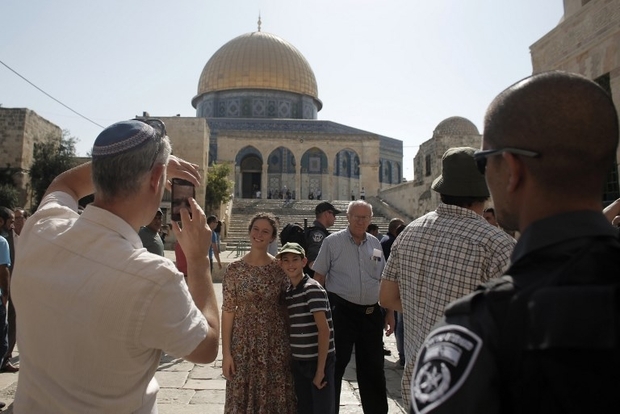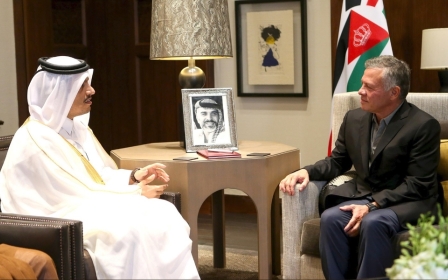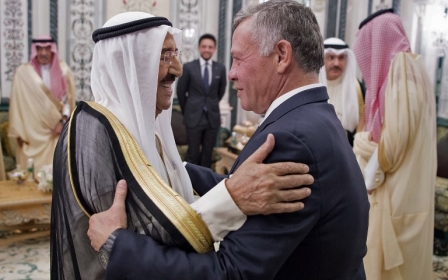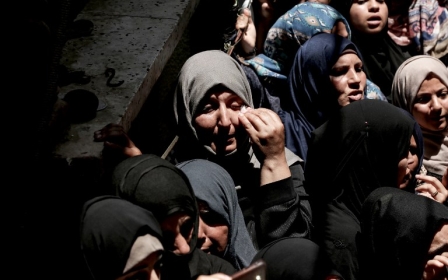Netanyahu meets Jordan's Abdullah as 'deal of the century' rumours swirl
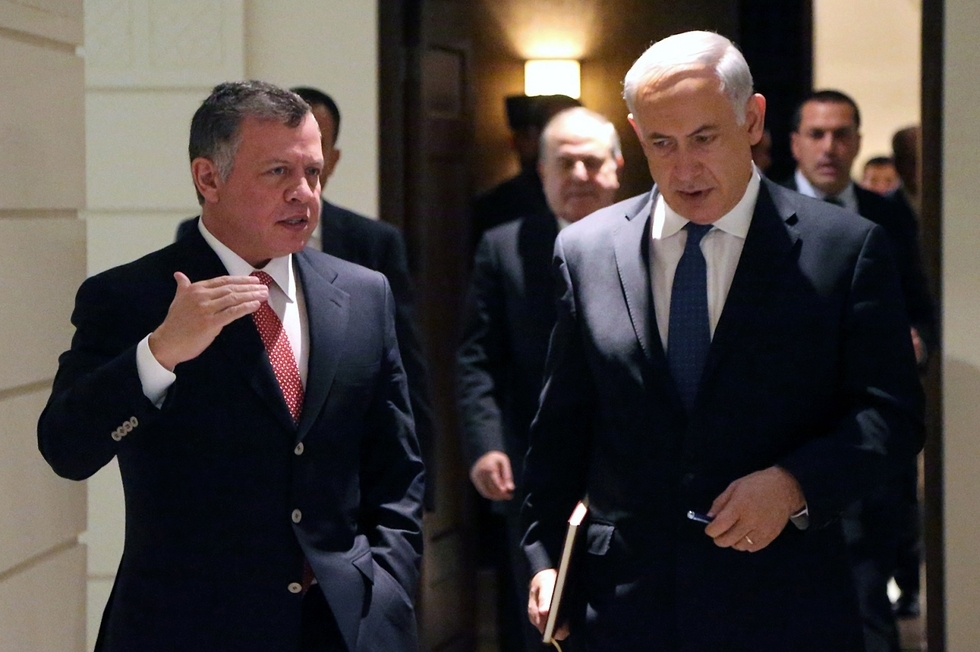
Israeli Prime Minister Benjamin Netanyahu met with Jordan's King Abdullah in Amman on Monday to discuss ways to advance regional peace, Netanyahu's office said in a statement.
The two leaders "discussed regional developments and advancing the peace process and bilateral relations," the statement said.
The meeting comes amid speculation that US President Donald Trump's administration could unveil its plan for Israel and Palestine, dubbed the "deal of the century", within days.
Ministers in Jordan's former government, which was dismissed earlier this month, told Middle East Eye that King Abdullah had been placed under pressure to back the deal in return for a package of economic aid from Gulf states following street protests in Jordan against proposed tax rises.
White House senior adviser Jared Kushner, the US envoy to the Middle East and Trump’s son-in-law, and Jason Greenblatt, Trump’s Middle East negotiator, are expected in the region this week.
Yossi Alpher, a former aide to former Israeli prime minister Ehud Barak, said it was clear Netanyahu was being “kept in the loop” by Trump officials. He told MEE: “He is being apprised of what is coming. There won’t be any surprises for him.”
The US has courted support for its plan among its Arab regional allies, with sources telling Middle East Eye in March that Saudi officials had delivered a copy of the plan to Palestinian Authority President Mahmoud Abbas.
However, sources told MEE that Abbas had refused to even look at the plan, which he has derided as the "slap of the century", amid a collapse in relations between the PA and Washington since the US recognised Jerusalem as Israel's capital last year.
Jordan signed a peace treaty with Israel in 1994. It is one of two Arab countries, along with Egypt, to have treaties with it.
Abdullah’s Hashemite dynasty is also custodian of the Muslim holy sites in Jerusalem.
"Prime Minister Netanyahu reiterated Israel's commitment to maintaining the status quo at the holy sites in Jerusalem," the statement said.
Jerusalem's Old City has been illegally occupied by Israel since the 1967 Arab-Israeli war. Under the current status quo agreement it allows Muslims to worship at the al-Aqsa mosque, while Jews pray at the Western Wall.
Meanwhile, Israel has been tightly restricting access to the site for most Palestinians. There have been long-standing Palestinian fears that Israel is seeking to engineer a situation where it can impose its sovereignty over the mosque.
David Friedman, Trump’s ambassador to Israel and a benefactor to the settlements, only heightened such fears last month when he was pictured apparently accepting a photo doctored by religious settlers that showed al-Aqsa mosque replaced by a new Jewish temple.
Jordan has witnessed mass protests over the past weeks in response to austerity measures, including a proposed tax hike, leading to Gulf states last week announcing a $2.5bn aid package at a summit in Mecca attended by King Abduilah.
A former Jordanian government minister told MEE that politicians saw the package as part of moves to exert pressure on the king to endorse the US plan.
Jordan hosts the highest number of Palestinian refugees in the world and the US plan is rumoured to proposals that would see Palestinians forfeit their "right of return" to lands lost in 1948 and 1967.
Mamdouh al-Abadi, A former deputy prime minister, said Jordan would not compromise its position towards the deal.
“Jordan will not allow any solution to the Palestinian cause that will negatively impact the kingdom," he said.
Jordan and Israel were also involved in a diplomatic row last year after a guard at the Israeli embassy in Jerusalem fatally shot two Jordanians.
The guard claimed that one of the victims attacked him while the other died in stray fire. The guard was given a hero's welcome in Israel, as he claimed diplomatic immunity that shielded him from prosecution in Jordan.
Middle East Eye propose une couverture et une analyse indépendantes et incomparables du Moyen-Orient, de l’Afrique du Nord et d’autres régions du monde. Pour en savoir plus sur la reprise de ce contenu et les frais qui s’appliquent, veuillez remplir ce formulaire [en anglais]. Pour en savoir plus sur MEE, cliquez ici [en anglais].


